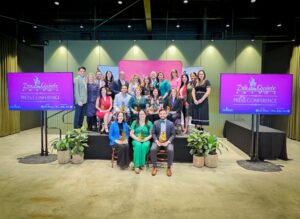Project for sustainable sargassum management launched in the Dominican Republic

Santo Domingo – The Instituto Tecnológico de Santo Domingo (Intec) reported implementing a project financed by the French Embassy in the Dominican Republic. The project focused on the sustainable management of agricultural waste and sargassum under the principles of blue and circular economy.
The academy indicated that, within the framework of the project, in which islands of the French Antilles participate, exchanges will be carried out between universities and companies on the management of agricultural waste and sargassum, critical actors in the tourism and agriculture sectors will be trained in sustainable practices, and new research and development projects will be promoted to advance in the management of these wastes.
“The project will directly impact coastal communities in the Dominican Republic by reducing the environmental and economic impacts of sargassum, and the rural population, particularly family farmers, through improved sustainable agricultural practices, which can contribute to a better quality of life and more sustainable livelihoods,” said the university.
In addition, approximately 30 specialists from the country’s Ministries of Agriculture, Tourism, and Environment will benefit from training to strengthen their capacities in effectively managing agricultural waste and sargassum according to the blue and circular economy principles.
Intec informed that, according to a press release, the Inter-University Sargasso Research Network will participate in research and development activities related to the project as part of the initiative, strengthening its capacities and promoting inter-sectorial collaboration.
The network is made up of the Autonomous University of Santo Domingo (UASD); Intec, APEC University (Unapec), Federico Henríquez y Carvajal University (Ufech), Iberoamerican University (Unibe); Pedro Henríquez Ureña University (Unphu), Pontificia Universidad Católica Madre y Maestra (Pucmm); ISA University; Universidad Tecnológica de Santiago (Utesa) and Universidad Católica del Cibao (Ucatesi).
From the private sector, the companies SOS Carbon, Algea Nova, and Tecmalab, which are involved in managing agricultural waste and sargassum, will acquire new knowledge and identify business opportunities linked to the blue and circular economy. In the same vein, the Puntacana Group Foundation and the Association of Hotels and Tourism of the Dominican Republic (Asonahores), is also part of the initiative to train its staff on new practices and strategies to manage sargassum invasions.
The Asociación Bananos Ecológicos de la Línea Noroeste (Banelino), which groups 200 family farms, will train farmers and actors in the agricultural sector in new practices and strategies to manage agrarian waste more sustainably, with the support of the FAO office in the country.
As part of the initiative, Sylvie Gustave-Dit-Duflo, vice president of the Regional Council of Guadeloupe and president of the French Biodiversity Office, and Lydia Barfleur, coordinator of the Caribbean sargassum program SARGCOOP, will visit the Dominican Republic in mid-September. Likewise, Intec will start on September 16 the diploma course “Integral management of sargassum influxes in the tourism sector.”
Also, as part of the actions contemplated in the project, this initiative is part of the “French-Dominican cooperation in the management of agricultural waste and sargassum” program financed by the French Ministry of Foreign Affairs through the French Embassy in the Dominican Republic.





